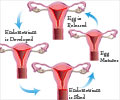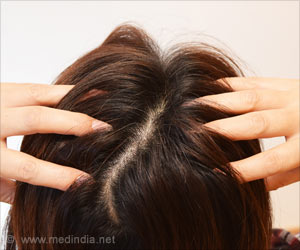Teenage girls breathing polluted air, unhealthy eating habits, increased weight gain, less physical activity and poor lifestyle can all lead to irregular periods.

- Poor air quality is associated with irregular menstrual cycles in teenage girls
- Unhealthy eating habits, increased weight gain, less physical activity and poor lifestyle can also lead to irregular periods
- Having nutritious food and increasing the intake of green leafy vegetables can help prevent irregular menstrual cycles
In previous studies, exposure to air pollution has always been linked to cardiovascular and pulmonary diseases.
However, in this study, the research team shows that there may be other systems that could be affected as well including the reproductive and endocrine system, said Shruthi Mahalingaiah from the Boston University School of Medicine in the US.
The research team desired to understand a participants’ exposure during a particular time window and used health and location data gathered in the Nurses’ Health Study-2 plus air pollution exposure metrics from the EPA air quality monitoring system.
Dr. Archana Dhawan Bajaj, Gynecologist, Obstetrician and IVF Expert, The Nurture Clinic said, “Particulate matter can create hormonal problems in the body, and once these hormonal changes it causes an irregular menstrual cycle.”
Link between Air Pollution and Irregular Menstrual Cycle
Dr. Alka Kriplani, HODof gynecology, AIIMS, said, “There has been no direct evidence which suggests that air pollution creates an irregular menstrual cycle. Poor air quality can cause respiratory and cardiovascular issues, but prolonged breathing in bad air quality can create stress and other hormonal issues in the body.”
Effects of Air Pollution
Air pollution refers to the presence of solid particles and gases in the air. Pollutants may be natural or humanmade. These contaminants cause discomfort, disease, or death to humans. Other living organisms are also affected.
The atmosphere is a dynamic complex mixture of gases that is vital for sustaining life on Earth. Emissions from vehicles, factories, dust, pollen and mold spores may be suspended as particles.
Some air pollutants are poisonous; inhalation of polluted air causes respiratory diseases such as asthma, heart diseases, changes in lung function, and also death.
Long-term exposure to polluted air can compromise the growth (especially lung development) in children. Air pollution is not restricted to the external environment: indoor pollution is also hazardous to health.
Source-Medindia














